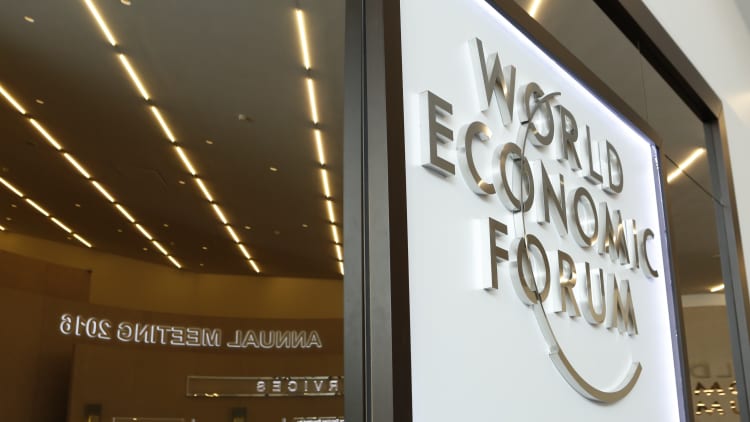Chinese President Xi Jinping is about to take center stage at the ultimate gathering of globalists from the world over, and he hopes to make his country the middle of global attention while he's at it.
Xi will speak before elite business and political leaders at the World Economic Forum in Davos next Tuesday, just days before populist President-elect Donald Trump is sworn into office in the United States. Beijing will use the appearance in Switzerland to favorably contrast Xi and China with Trump and the United States.
Already before taking office, Trump has leaned hard on American companies to keep operations in the U.S., and he has chosen vocal China critics for top positions on trade and defense. In contrast, Xi is expected in his opening plenary speech to play up China as a proponent of globalization.
"I think China's trying to send a signal that it's the world's most responsible stakeholder. The U.S. by contrast is a greater source of anxiety, tensions and volatility," said Scott Kennedy, deputy director, Freeman Chair in China Studies, at the Center for Strategic and International Studies.
"The growing tensions between the U.S. and China gives this a bigger, larger significance than it otherwise would have," he said.

Xi will be the first Chinese president to attend the World Economic Forum's Davos gathering and comes as part of a state visit to Switzerland, just ahead of the Lunar New Year. Xi is a well-traveled Chinese leader who is also expected to consolidate his own power within China at a Communist Party congress this fall.
As the leader of the world's second-largest economy, Xi will embrace the opportunity at Davos to show that the international community needs to pay attention to China's interests.
"More than ever, China has to raise a voice, when we know President-elect Trump is challenging, criticizing China," said Richard Attias, who produced the World Economic Forum in Davos for 15 years and now heads consulting firm Richard Attias & Associates. "When you are challenged you need to react and I think what President Xi is doing is right."
At Davos, the Chinese "will talk to the businesses coming to explain to them, despite all the promises of President-elect Trump, [that] China will still be an interesting place to invest and include in your strategies," Attias said.
Beijing has taken several recent steps to position more at the center of global trade and finance. Last January, China launched the Asian Infrastructure Investment Bank to serve as a financing alternative to the U.S.-led World Bank.
More recently, China is stepping in replace the United States as the central player in Pacific trade, following the U.S. Congress' failure to ratify the Trans-Pacific Partnership trade agreement that was negotiated by the Obama administration.
'... increased tensions in coming years'
China's investments include projects in Africa, Latin America and the European Union, and Beijing's "One Belt, One Road" program seeks to build infrastructure that links the country to surrounding underdeveloped regions.
China's heavily state-influenced companies have been on a buying spree, snapping up businesses, property and technology from Europe, Japan, Australia and the United States. Last year, China's global outbound foreign direct investment jumped by a whopping 40 percent to an estimated nearly $200 billion, according to a report released this month by Rhodium Group and the Mercator Institute for China Studies in Berlin.
Supported by a growing awareness that China uses protectionism and state supports to give its companies unfair advantages against the rest of the world, the Trump administration wants to reset the relationship between the two countries.
"I sense a lot of anxiety here in part because they're not really sure what the ask is from the incoming administration," Kennedy said, speaking from Beijing. "They are not ... sure what they are going to do and whether [when] they achieve those things they can achieve equilibrium."
Trump has picked "Death by China" author Peter Navarro to head a newly formed National Trade Council, and tapped for the U.S. Trade Representative post Robert Lighthizer, a lawyer who's fought against China dumping steel into the U.S. market.
Trump's "selection of the key economic advisors in the new administration, suggests there's likely to be increased tensions in coming years," said Yukon Huang, a senior fellow in the Carnegie Asia Program and formerly the World Bank's country director for China.
That means in his Davos speech, Xi "also has to indicate intentions in the future to continue liberalizing … objectives which the U.S. leaders and European leaders would want to support," Huang said.
Xi has been criticized outside of China for slowing or reversing some of the country's progress toward greater openness and economic liberalization.






